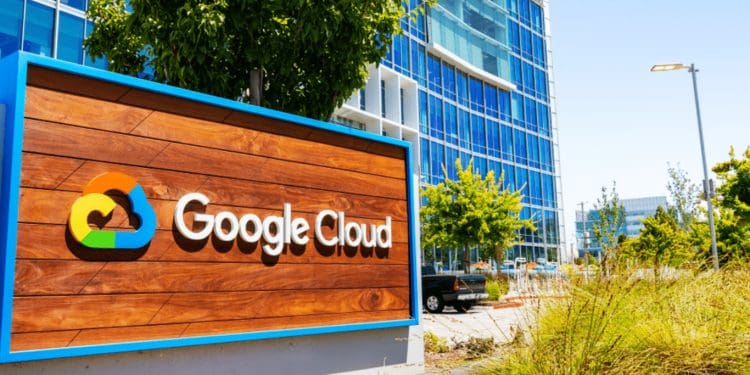- Tech giant Google Cloud is planning to become a validator on Tezos
- The company is already a validator for Solana and Aptos and now has a Web3 fan at the helm of YouTube
- Google has been relatively silent concerning the Cloud business’s involvement in the Web3 sector.
Google cloud is set to become a validator on Tezos “bakers,” the validators that helped secure the blockchain’s network. This means Google Cloud’s corporate customers can deploy Tezos nodes.
Tezos nodes are a form of the computer running the blockchain software to validate and store transaction history to build Web3 applications on the network.
With this move, Tezos follows on the heels of Aptos and Solana, who already support Google Cloud as a validator that produces blocks on its network.
Notably, validators on proof-of-stake (PoS) networks process transactions and integrate additional blocks into the chain. Moreover, they also have a role in the governance process to vote and determine if/how to adjust elements within blockchain networks. However, Google Cloud has yet to demonstrate any interest in involving itself in Tezos network politics. Citing Tezos Foundation Chief Commercial Officer Mason Edwards:
“When it makes sense, I would imagine them having an opinion is kind of part of the design. But yeah, I definitely don’t see them getting involved in the politics or voting at this stage.”
Besides becoming a validator, Google Cloud will also begin offering enterprise-level support to developers building applications on the Tezos ecosystem. According to Edwards, this is with the hope that it will help attract a new wave of developers into the Web3 sector.
Commenting on Google Cloud coming in as a validator, Edwards said:
“This is Google Cloud joining the network as a block-producing validator to always have a finger on the pulse of how easy it is to deploy them.”
The Tezos CCO added that the move was part of the ecosystem’s working strategy, which, for the most part, has been led through Nomadic Labs. Edwards highlighted that the Tezos Foundation has already “brought institutions in by essentially helping them set up these block-producing validators called bakers.”
This has been a good foothold for these institutions to learn more about the technology ecosystem.
Google Cloud Doubling Down On Partnerships
This validator agreement with Tezos is one of many for the Google Cloud team, who entered several other partnerships across 2022. In similar arrangements, Google Cloud became the validator for the Solana and Aptos networks, alongside collaborating with Coinbase (COIN) to enable customers to pay for it using Bitcoin (BTC) and Ethereum (ETH). Tezos has also signed a partnership with Binance’s BNB Chain.
According to Google Cloud Web3 engineering director James Tromans, the company defines its role in Web3 as it did in the open-source community when Web2 was still nascent. He said,
“As an infrastructure provider, Google Cloud views the evolution of blockchain technology and decentralized networks today as analogous to the rise of open-source technologies that led to the internet 10-15 years ago.”
The comments were made in an email to a news site, with Tromans adding,
“Just as open-source developments were integral to the early days of the internet, blockchain is yielding innovation and value creation for consumers and businesses in Web3.”
Nevertheless, Google has been relatively silent concerning the Cloud business’s involvement in the Web3 sector. Accordingly, there has not been any mention of its recent partnerships in the company’s Q4 2022 report filed with the Securities and Exchange Commission (SEC) earlier in the month.
Web3 Buzz Surges In Other Business Avenues
Excitement for Web3 has become manifest not just in the crypto arena but in other avenues as well. The new CEO of Google’s YouTube, Neal Mohan, has opined that non-fungible tokens (NFTs) could enable creators to establish tighter relationships with their fans. The YouTube executive also hopes that NFTs could play a significant role in making YouTube more captivating.
The integrations indicate the tech giant’s growing interest in blockchain and Web3 projects. The integrations will also inspire confidence in other companies that are open to moving into the blockchain scene. This is because they know they can do so by leveraging infrastructure with the size and resilience offered by companies such as Google.














